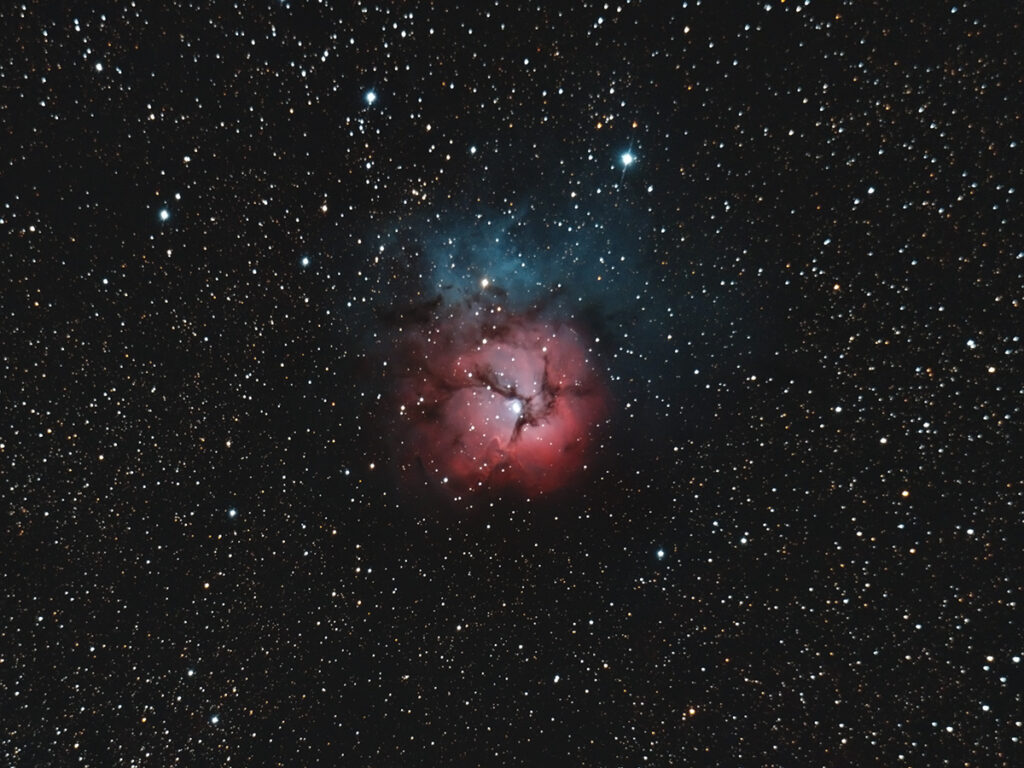
Telescope: Meade SN10 at f/4, Orion Atlas EQ-G
Camera: QHY 168c, -10: Deepsky Default; Gain: 4, Offset 30
Filter: Orion Imaging Skyglow Filter
Guide scope: Williams Optics 50mm, ASI290MM Mini, PHD2
Exposure: 17x240sec saved as FITS
Darks: 32x240sec saved as FITS
Flats: 32×0.25sec, tee shirt flats taken at dusk
Average Light Pollution: Red zone, fair transparency
Lensed Sky Quality Meter: 18.4 mag/arc-sec^2
Stacking: Mean with a 2-sigma clip.
White Balance: Nebulosity Automatic
Software: Nebulosity, Deep Sky Stacker, Photoshop
M20, the Trifid Nebula in Sagittarius is one of a series of nebula that grace the southern Milky Way as seen from mid northern latitudes. The red is a tenuous cloud of hydrogen set aglow by stars embedded in it, the blue is dust in the background reflecting starlight and the dark lanes are vast streamers of dust in the foreground. Being near the Milky Way this field is crowded with faint stars, accept near the nebula. This shows that the nebula is in the foreground, blocking the light from the faint distant stars in the background. Visually, I find M20 to be quite a challenge from my backyard. The bright double star at its core makes a good guidepost lying near the confluence of the dark dust lanes.
M20 rises in the southeast shortly before midnight and rises to the south during the early morning hours.
Recent Comments